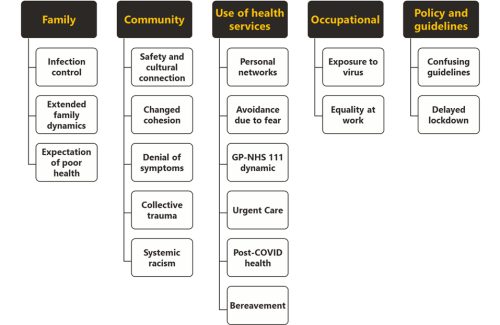Race (based on shared physical characteristics such as skin colour) and ethnicity (based on shared cultural factors such as language and traditions) are social constructs – shaped by history, culture and power , but their consequences are very real. Historical legacies such as colonialism and the ongoing politics of race, continue to influence how people experience public institutions, including the NHS. These influences are evident in persistent inequities in access. experience and poorer outcomes for ethnically minoritised people.
Recent national strategies including the 10 Year Health Plan for England and interventions such as the Core20PLUS5 approach, have demonstrated the need to address ethnic inequalities. High-quality ethnicity data are essential to understanding and addressing these inequalities. However, as most data specialists in the NHS or public health will tell you, the poor quality of the current NHS ethnicity data is limiting the system’s ability to act on disparities.
Recognising this, NHS England’s Healthcare Inequalities and Improvement Team commissioned the Strategy Unit to support the development of a national Ethnicity Recording Improvement Plan. The Plan outlines practical, evidence-based actions to strengthen how ethnicity data are requested, provided, recorded, processed, and used across the NHS.
A systematic, evidence-led approach
To inform the plan, the Strategy Unit took a multi-disciplinary approach that combined evidence review, data analysis, and stakeholder insight.
We reviewed 24 key publications to identify areas for improvement, analysed three national datasets to assess data completeness and accuracy, and interviewed 21 stakeholders to capture expert perspectives. We also produced seven case studies highlighting examples of effective practice across the NHS.
Triangulating these insights allowed us to identify five priority domains for improvement:
Supporting NHS staff to feel confident and skilled when asking for ethnicity information (by understanding the rationale for collecting).
Building public understanding and trust in how ethnicity data are collected and used.
Ensuring ethnicity data are recorded accurately and consistently (with standardised categories) across systems.
Improving data sharing and quality assurance to make processing more reliable (through data sharing and analysis).
Encouraging meaningful use of ethnicity data to identify and tackle healthcare inequalities.
From insight to action
For each domain, we developed practical, evidence-based recommendations for NHS England, Integrated Care Boards (ICBs), and NHS provider organisations. These were refined through further stakeholder engagement and aligned with wider cross-NHS work before publication.
The Ethnicity Recording Improvement Plan marks an important step towards more complete, accurate, and consistent data - ethnicity data that can be confidently used to tackle inequalities across the health system.
The next step depends on all of us who work with data to: disaggregate it by ethnicity for analysis; interpret the findings, identifying any disparities; use evidence of ethnic disparities as a starting point to improve health services.
We are proud to have contributed to this national initiative and are committed to implementing the actions relevant to our own work - helping ensure data is used meaningfully to improve equity in access, experience, and outcomes.
Our thanks to the wider Strategy Unit project team: Danielle Hett, Ellie Jones, Richard Ward, Dechante Johnson, Hoi Ying Cheng, Shaurya Sinha, Claire McKechnie-Mason.
Additional thanks to NHS England colleagues: Lea Volpe and Muktai Panchal


